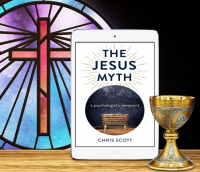
If there’s one thing we can be sure of in the Quaker way, it is that Quakers are concerned to change the world.
Action
When Friends are challenged by a situation that concerns them and they have checked out their motivation for getting involved, when they have sought to understand what is really happening there so that they can know how to act appropriately, and when they have attempted in one way or another to communicate the truth they have discerned, they can then take action to provide real help. Let me give an example.
In 1813 Elizabeth Fry was taken around Newgate Prison in London by a friend of hers. She was appalled. It was overcrowded and filthy. The prisoners were underfed, uncared for and morally degraded. Elizabeth Fry was moved to do something. But first she wanted to learn what was going on in the prison, especially among the women prisoners. She visited them and talked with them at length to understand their situation. And being a woman of some social standing – from one of the rich banking families in the country, the Gurneys – she was able to talk to the governor of the prison and members of parliament.
The situation became clear. The prisoners were thought of as less than human. They were being punished by the State in the desperate attempt to rid them of their evil intent, and to deter anyone else like them who might consider doing similar things. But Elizabeth Fry discovered that this was a gross misjudgement, both of the people who were being ill-treated in prison and of the effects such a punitive regime would have on them. In fact no serious attempt had been made to understand these people. No one really listened to them. They were being treated on the basis of preconceived ideas and prejudices in a spirit of revenge and hatred. Fry realized she had to act in such a way as to highlight their humanity and communicate the truth of what was happening here. This she did, visiting the prisoners regularly, helping them with practical necessities, organizing sewing classes that could earn them money, and teaching them to read and understand the Bible. Her action drew attention to what was happening in the prison. Prominent Victorians came to the prison just to see this well-to-do, respectable woman fraternizing with criminals. It had a big effect, and soon a movement was afoot to reform the whole prison system and treat criminals with respect.
A modern example of a typical intervention can be found at the Quaker offices at the United Nations in Geneva and New York. Not much is known about them because their work is deliberately low-key, and indeed confidential. What they are doing is to bring politicians and diplomats together so that they can really listen to one another, without the pressure of the media glare, and get to know one another and their various concerns and constraints. Friends had been supportive of the United Nations from the beginning, but they noticed that its activities were being hampered by a lack of understanding between the countries that found themselves at odds. The problem was not that their interests really conflicted, but that they were perceived to conflict because of the way the politicians had been led to think about one another. Meetings were therefore arranged so that a genuine understanding, and respect, could be established. In this way Friends have been able to facilitate mediation between countries that were in serious conflict, for example between Israel and Egypt in 1956, and in the Biafran War of the 1970s.
It can be seen however, that a good part of the action in such interventions is getting people to listen and to understand. This was brought home to me when I attended a lecture on the antislavery movement, at the time that the two-hundreth anniversary of the abolition of the slave trade was being celebrated in 2007. The lecturer, James Walvin, who was an expert on the history of slavery, made the point that behind the success of Wilberforce in parliament was a Committee of twelve people who had campaigned throughout England in the previous decades. Moreover, nine of these twelve people were Quakers. I asked him a question at the end of the lecture – I wrote it down afterwards, I was so impressed by his reply – ‘You have described the huge impact the Quakers had on the abolition movement in the late eighteenth century. But they had a very different ethic from most people in the country. How did they manage to persuade people that slavery was wrong?’ He replied: ‘It was surprisingly simple. The Quakers told people what exactly was happening. They told them the truth’.
So once again we notice how close these two concerns are: to communicate the truth and to help relieve suffering. The most effective way of our communicating the truth that is of most concern to us is to live it out in our lives. Our lives become our testimony. We now see that in seeking to relieve suffering the most effective means we have is to convey the truth of the situation that causes suffering. We have confidence that people have the resources within them, maybe deep within them and unknown to themselves, to recognize the realities of their life and to respond with an open heart. There is no guarantee that they will, of course. And we have no control over how people inwardly respond to situations; nor does anyone else. We can only trust the secret processes at work in people, and hope that they come to fruition. That hope is based, not on any dogma, but on what we ourselves have experienced of those secret processes, and on what we see happening in those around us. It is perhaps a slender hope, compared with the grand schemes and plans that others may trust in, but we are confident that it is very well grounded, and that it is enough to inspire us to work for a good outcome.
 Rex Ambler was a lecturer in theology at Birmingham University for over thirty years, and is retired. He now works mostly with Quakers, giving talks and workshops on Quaker faith
and practice, traveling to many parts of the world to teach 'Quaker meditation' and to help people set up their own 'light groups' to practise it. He lives in Lancashire, UK.
Rex Ambler was a lecturer in theology at Birmingham University for over thirty years, and is retired. He now works mostly with Quakers, giving talks and workshops on Quaker faith
and practice, traveling to many parts of the world to teach 'Quaker meditation' and to help people set up their own 'light groups' to practise it. He lives in Lancashire, UK.
The Quaker Way - a rediscovery
This book is an attempt 'to explain the Quaker way, as far as that is possible'. It is a distinctive way and, though perhaps no better than others, it has its own integrity and effectiveness. Although it is fairly well known, Quakerism is not well understood, so the purpose of this book is to make it intelligible, to explain how it works as a spiritual practice and why it has adopted the particular practices it has. It is aimed primarily at non-Quakers, who may nonetheless be interested to know what Quakerism is about.
- Paperback £11.99 || $19.95
- Apr 26, 2013. 978-1-78099-657-8.
- BUY | AMAZON US | AMAZON UK
- eBook £6.99 || $9.99
- Apr 26, 2013. 978-1-78099-658-5.
- BUY | AMAZON US | AMAZON UK
Categories:
0 comments on this article








